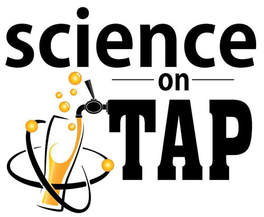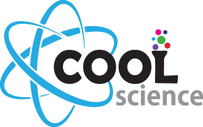
Join Cool Science for Science on Tap every 2nd Monday of the month [except this month- see below] at Jack Quinn’s Irish Pub & Restaurant in downtown Colorado Springs. Presenters begin at 6:30 pm and typically speak for 60-90 minutes including Q&A, with food and drink available beginning at 6:00 pm. A wide variety of fascinating topics are presented by local scientists for informal discussion, and the relaxed atmosphere encourages anyone and everyone to come explore the latest ideas in science and technology. From practical to theoretical, the presentations and group interactions provide a fun and interesting way to gain an understanding of the world around us.
Join Cool Science for Science on Tap every 2nd Monday of the month [except this month- see below] at Jack Quinn’s Irish Pub & Restaurant in downtown Colorado Springs. Presenters begin at 6:30 pm and typically speak for 60-90 minutes including Q&A, with food and drink available beginning at 6:00 pm. A wide variety of fascinating topics are presented by local scientists for informal discussion, and the relaxed atmosphere encourages anyone and everyone to come explore the latest ideas in science and technology. From practical to theoretical, the presentations and group interactions provide a fun and interesting way to gain an understanding of the world around us.
Next up: Monday, November 14, 2022 at 6:30 pm
Selfish Self-Driving Cars: The Emerging Ethics of Socio-Technical Systems
Philip Brown, PhD, UCCS Computer Science
Summary:
Interactions between technology and society are a hallmark of modern times: social interactions are mediated by social media and videoconferencing platforms, commerce is facilitated by trading and supply-chain algorithms, and self-driving cars are beginning to appear on public roads. For engineers and computer scientists who design these systems, what new ethical considerations are at play? In this roundtable I will touch upon potential ethical dilemmas faced in several current examples, and then dive deeper into the emerging paradigm of behavior design for self-driving cars. We will consider the fact that engineers can essentially decide how selfish self-driving cars should be, and I will explore how ethical principles should guide this design process. Unsurprisingly, clear-cut answers are elusive; depending on how the question is asked, the "right" answer could even be that self-driving cars should be totally "selfish."
Interactions between technology and society are a hallmark of modern times: social interactions are mediated by social media and videoconferencing platforms, commerce is facilitated by trading and supply-chain algorithms, and self-driving cars are beginning to appear on public roads. For engineers and computer scientists who design these systems, what new ethical considerations are at play? In this roundtable I will touch upon potential ethical dilemmas faced in several current examples, and then dive deeper into the emerging paradigm of behavior design for self-driving cars. We will consider the fact that engineers can essentially decide how selfish self-driving cars should be, and I will explore how ethical principles should guide this design process. Unsurprisingly, clear-cut answers are elusive; depending on how the question is asked, the "right" answer could even be that self-driving cars should be totally "selfish."
Philip Brown is an Assistant Professor in the Department of Computer Science at the University of Colorado at Colorado Springs. He received the PhD in Electrical and Computer Engineering from the University of California, Santa Barbara under the supervision of Jason Marden. He received the Master and Bachelor of Science in Electrical Engineering from the University of Colorado at Boulder and Georgia Tech (respectively), between which he developed process control technology for the biofuels industry. Philip is interested in the impact of human social behavior on the performance of large-scale infrastructure and software systems, and studies this by combining concepts from game theory and feedback control of distributed systems. Philip was a finalist for best student paper at IEEE CDC in 2016 and 2017, received the 2018 CCDC Best PhD Thesis award from UCSB, and the Best Paper Award from GameNets 2021.









